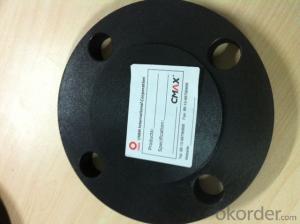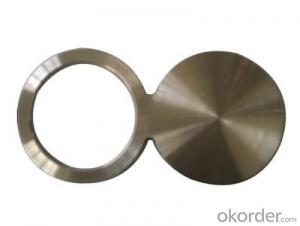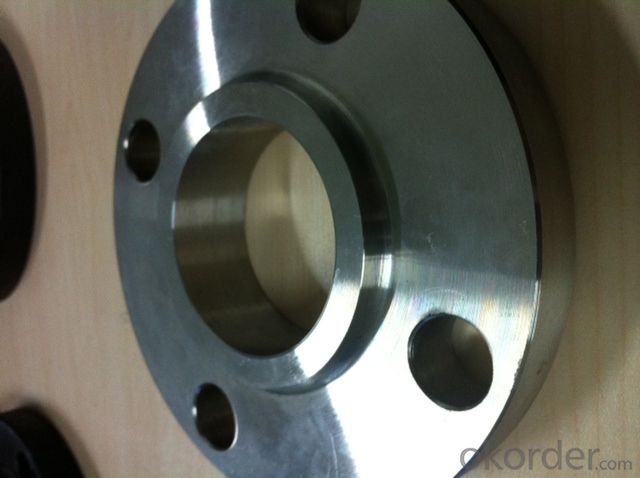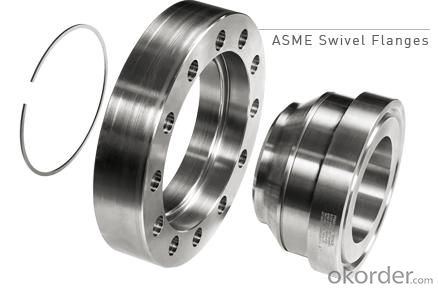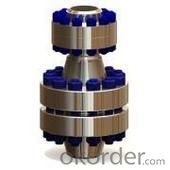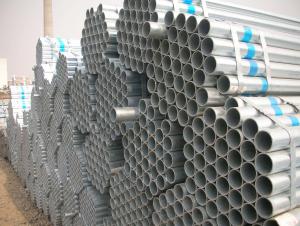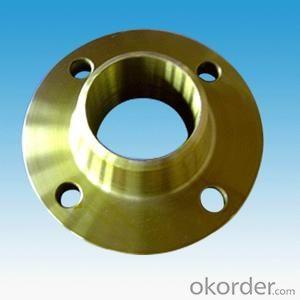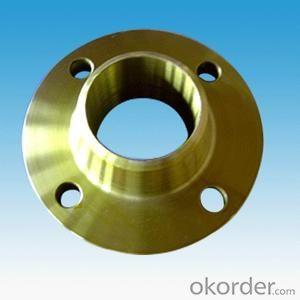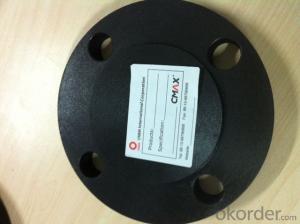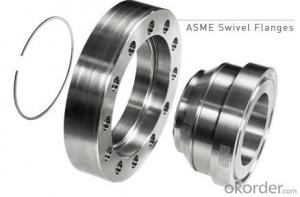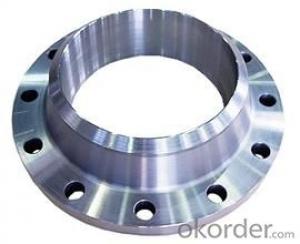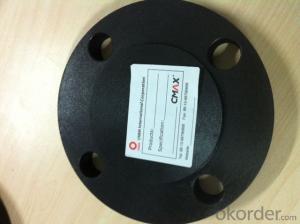CARBON STEEL PIPE FORGED FLANGES A105 ANSI B16.5
- Loading Port:
- Tianjin
- Payment Terms:
- TT OR LC
- Min Order Qty:
- 1 pc
- Supply Capability:
- 10000 pc/month
OKorder Service Pledge
OKorder Financial Service
You Might Also Like
Package Of Carbon Steel Flange:
PACKED IN PLYWOOD CASES OR PALLETS
Painting Of Carbon Steel Flange:
BLACK OR YELLOW PAINTING FOR CARBON STEEL
Marking Of Carbon Steel Flange:
REFER TO MARKING DOCUMENT or AS PER CUSTOMER REQUEST
Shipping Marks Of Carbon Steel Flange:
EACH WOODEN BOX TWO PLASTIC SHIPPING MARKS
Specification Of Carbon Steel Flange:
Carbon Steel Flange Slip On Flange, Plate Flange, Blind Flange, Welding Neck Flange, Socket Welded Flange, Thread Flange, Lap Joint Flange, Long Welding Neck Flange
Size : 1/2"-48"
Wall Thickness.: SCH10-SCH160, SGP , XS, XXS, DIN ,STD
| Name | Carbon Steel Flange |
| Size | 1/2" - 48" |
| Face | RF, FF, RTJ |
| Wall thickness | Sch5-Sch160 XXS,STD,XS, SGP |
| Standard | ASME B16.5, B16.47, BS4504, JIS B2220, API 6A, 11Detc. |
| We can also produce according to drawing and standards provided by customers. | |
| Material | ASTM A105, A350 LF1, LF2, F11, F12, St35.8, St45.8, 15Mo3etc, |
| Packaging | Wooden Cases, wooden pallet , or carton box , or nylog bag and then in wooden cases |
| Surface Treatment | Paintting black or yellow color, or Anti-rust Oil |
| Delivery Time | 20-30 days, after received advance payment. |
| Quality | 100% Heat Treatment, No Welding repair |
| Others | 1.Special design available according to your drawing. |
| 2.anti-corrosion and high-temperature resistant with black painting | |
| 3. All the production process are made under the ISO9001:2000 strictly. | |
| 4. A conformity rate of ex-factory inspection of products. | |
| 5. we have export right , offering FOB , CNF CIF price |
STANDARD & MATERIAL GRADE
STAMDARD Of Carbon Steel Flange
| Standard | Pressure | Size | |
| European Standard | EN 1092-1 | Class PN6 ~ PN100 | DN10 ~ DN4000 |
| American Standard | ASME B16.5 | Class 150 ~ 2500 | 1/2" ~ 24" |
| ASME B16.47A | Class 150 ~ 900 | 26" ~ 60" | |
| ASME B16.47B | Class 75 ~ 900 | 26" ~ 60" | |
| German Standard | DIN 2527,2566,2573, 2576, 2627-2638,2641,2642,2655,2656 | PN6~PN100 | DN10 ~ DN4000 |
| Australian Standard | AS2129 | Table: T/A, T/D, T/E, T/F, T/H, T/J, T/K, T/R, T/S, T/T | DN15 ~ DN3000 |
| AS4087 | PN16 ~ PN35 | DN50 ~ DN1200 | |
| British Standard | BS4504 | PN2.5 ~ PN40 | DN10 ~ DN4000 |
| BS10 | T/A, T/D, T/E, T/F, T/H | 1/2" ~ 48" | |
| Japanese Standard | JIS B2220 | 5K ~ 30K | DN10 ~ DN1500 |
| API Standard | API 6A, 11D | 2000 PSI ~ 20000 PSI | 1 13/16" ~ 30" |
| French Standard | NFE 29203 | PN2.5 ~ PN420 | DN10 ~ DN600 |
MATERIAL Of Carbon Steel Flange
| Carbon Steel | ||
| Material Standard | Material Grade | |
| ASTM | ASTM A105 | A105, A105N |
| ASTM A350 | A350 LF1, LF2 | |
| ASTM A182 | F11, F12, F22 | |
| ASTM A106 | A, B, C | |
| DIN EN | DIN17175 | St35.8, St45.8, 15Mo3 |
| EN10216-2 | 195GH,P235GH, P265GH, 20MnNb6 | |
| JIS | JIS G3461 | STB340,410,510 |
| JIS G3462 | STBA12, 13, 20, 22, 23, 24 | |
| JIS G3454,G3455,G3456 | STPG 370, STB410, STS370,410, 510 | |
| STPT 370, 410, 480 | ||
- Q: What is the minimum temperature that steel pipes can handle?
- The minimum temperature that steel pipes can typically handle is around -45 degrees Celsius (-50 degrees Fahrenheit).
- Q: How do you calculate the pipe deflection for steel pipes?
- To calculate the pipe deflection for steel pipes, you need to consider several factors. The deflection of a pipe is the bending or displacement that occurs when a load is applied to it. Here are the steps to calculate the pipe deflection: 1. Determine the properties of the steel pipe: You need to know the material properties of the steel pipe, including its Young's modulus (E) and its moment of inertia (I). Young's modulus represents the stiffness of the material, while the moment of inertia measures its resistance to bending. 2. Identify the load applied: Determine the type and magnitude of the load that will be applied to the pipe. This could include factors such as internal pressure, external loads, or thermal expansion. 3. Use the appropriate formula: Depending on the type of load and the support conditions of the pipe, you will need to use the appropriate formula to calculate the deflection. For example, if the pipe is simply supported (fixed at both ends), you can use the formula δ = (5 * w * L^4) / (384 * E * I), where δ represents the deflection, w is the load per unit length, L is the length of the pipe, and E and I are the material properties mentioned earlier. 4. Input the values and calculate: Plug in the values of the load, pipe length, and material properties into the formula. By doing so, you can calculate the deflection of the steel pipe. It is important to note that the calculation of pipe deflection is a complex process that requires expertise in structural engineering. Therefore, it is advisable to consult a professional engineer or use specialized software for accurate and reliable results.
- Q: How are steel pipes used in the manufacturing of boilers and heat exchangers?
- Steel pipes are used in the manufacturing of boilers and heat exchangers primarily for their excellent strength, durability, and heat resistance properties. These pipes are used to carry hot fluids and gases, such as water and steam, throughout the boiler or heat exchanger system. The steel pipes provide a reliable and efficient means of transferring heat and maintaining the desired temperature within the system. Additionally, their corrosion resistance ensures long-lasting performance, making them an essential component in the manufacturing of boilers and heat exchangers.
- Q: How are steel pipes used in the manufacturing of chemical processing plants?
- Steel pipes are commonly used in chemical processing plants for various purposes such as transporting fluids, gases, and chemicals within the facility. They are utilized for the safe and efficient transfer of raw materials, intermediate products, and final products throughout different stages of the manufacturing process. Steel pipes provide excellent strength, durability, and resistance to corrosion, making them suitable for handling corrosive materials and operating under high pressure and temperature conditions. Additionally, steel pipes can be welded and connected easily, allowing for customized configurations and efficient installation in chemical processing plants.
- Q: What is the maximum pressure that steel pipes can handle?
- The maximum pressure that steel pipes can handle depends on various factors such as the grade and thickness of the steel, the diameter of the pipe, and the intended application. However, steel pipes are known for their high strength and durability, allowing them to withstand high pressure conditions. In general, steel pipes can handle pressures ranging from a few hundred PSI (pounds per square inch) to several thousand PSI, depending on the specific specifications and design considerations. It is crucial to consult engineering standards, industry guidelines, and relevant experts to determine the appropriate maximum pressure for a specific steel pipe.
- Q: Can seamless steel pipe and ordinary steel pipe be welded?
- If your project is a seamless steel pipe, so theoretically, you put the tube with connected is not used.But the actual engineering operation, design drawings will be put on the normal need to improve the requirements of the drawings to the actual requirements, so if is the need of seamless steel pipe, welded pipe in the end so can you see yourself.
- Q: Are steel pipes resistant to chemicals and corrosion?
- Generally speaking, steel pipes possess a high resistance to chemicals and corrosion. To further enhance this resistance, protective layers such as zinc or epoxy are often applied to steel pipes. These coatings serve as a barrier, preventing direct contact between chemicals and the steel, thus reducing the risk of corrosion. Moreover, steel itself possesses inherent corrosion-resistant properties, making it a suitable material for applications where exposure to chemicals and corrosive elements is common. However, it is worth noting that the level of resistance may vary depending on the specific type of steel, the chosen coating, and the particular chemicals or corrosive substances involved. Therefore, it is advisable to seek advice from experts and carefully consider the specific requirements of the intended application to ensure the appropriate selection of steel and protective measures, thereby maximizing resistance to chemicals and corrosion.
- Q: What are the different grades of steel used in pipe manufacturing?
- There are various grades of steel used in pipe manufacturing, including carbon steel, stainless steel, alloy steel, and high-strength low-alloy (HSLA) steel. Each grade has different characteristics and properties, making them suitable for specific applications and environments.
- Q: What are the different types of steel pipe elbows?
- There are various industries and applications that commonly utilize different types of steel pipe elbows. These types encompass: 1. 90-degree elbows: Employed when redirecting fluid or gas flow requires a sharp 90-degree bend. They find extensive use in plumbing, construction, and industrial piping systems. 2. 45-degree elbows: Similar to 90-degree elbows, these elbows alter flow direction, but with a smaller angle. They are suitable for situations requiring a more gradual change in flow direction. 3. Long radius elbows: Differing from standard elbows, long radius elbows possess a larger curvature radius. This design minimizes fluid friction and pressure drop, making them ideal for applications necessitating smoother flow, such as high-flow systems or those involving viscous fluids. 4. Short radius elbows: In contrast, short radius elbows feature a smaller curvature radius. They are generally utilized in confined spaces where a compact design is essential, although they may lead to increased fluid friction and higher pressure drops. 5. Reducing elbows: These elbows are ideal for connecting pipes of varying diameters. With one end having a larger diameter and the other end with a smaller diameter, they enable a seamless transition between two pipes of different sizes. 6. Mitered elbows: Mitered elbows are tailor-made elbows fabricated by cutting and welding multiple pipe sections at specific angles. They are frequently employed when standard elbows cannot accommodate the required angle or when a unique design is necessary. In conclusion, the selection of the appropriate type of steel pipe elbow depends on factors such as the specific application, fluid flow requirements, space limitations, and compatibility with the piping system.
- Q: How are steel pipes used in the transportation of liquids and gases?
- Steel pipes are widely used in the transportation of liquids and gases due to their durability, strength, and resistance to corrosion. They are commonly employed in various industries such as oil and gas, water supply, and chemical processing. In the transportation of liquids, steel pipes are used to convey crude oil, refined petroleum products, water, and other fluids. These pipes are designed to withstand high pressure and maintain the integrity of the liquid being transported. The smooth inner surface of steel pipes minimizes friction, allowing for efficient flow and reduced energy consumption. Additionally, the strength of steel pipes ensures that they can withstand the weight of the liquid being transported without deformation or failure. When it comes to gas transportation, steel pipes are crucial for their ability to safely transport natural gas, propane, and other compressed gases over long distances. These pipes are engineered to withstand high pressures and extreme temperatures. They are also designed to prevent leakage, which is of utmost importance when dealing with flammable or toxic gases. The strength and durability of steel pipes make them ideal for withstanding the stress and strain that may occur during the transportation of gases. Furthermore, steel pipes are often used in the construction of pipelines for long-distance transportation of liquids and gases. These pipelines can span hundreds or even thousands of kilometers, and steel pipes are the preferred choice due to their high strength and long-term reliability. They can handle the weight of the pipe and the transported substance, as well as the external forces such as soil pressure and temperature fluctuations. In summary, steel pipes play a crucial role in the transportation of liquids and gases. Their durability, strength, and resistance to corrosion make them the preferred choice for conveying various substances over long distances. Whether it is for oil and gas, water supply, or chemical processing, steel pipes ensure the safe and efficient transportation of fluids and gases, contributing to the functioning of various industries and economies worldwide.
Send your message to us
CARBON STEEL PIPE FORGED FLANGES A105 ANSI B16.5
- Loading Port:
- Tianjin
- Payment Terms:
- TT OR LC
- Min Order Qty:
- 1 pc
- Supply Capability:
- 10000 pc/month
OKorder Service Pledge
OKorder Financial Service
Similar products
Hot products
Hot Searches
Related keywords
